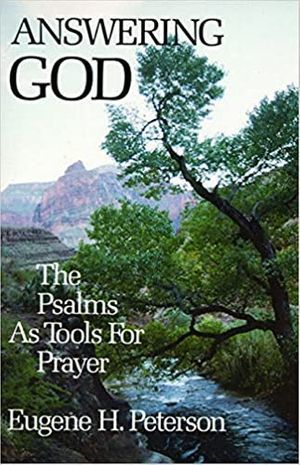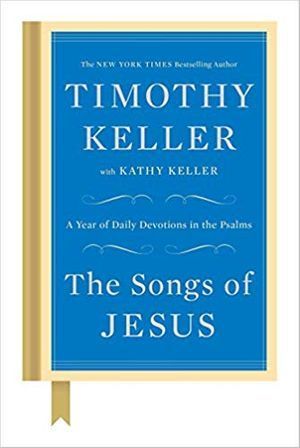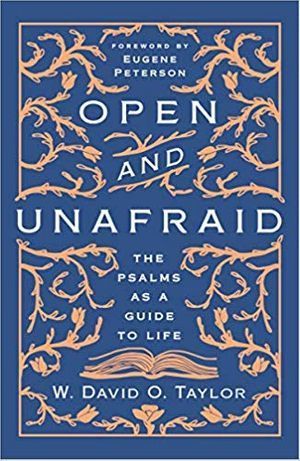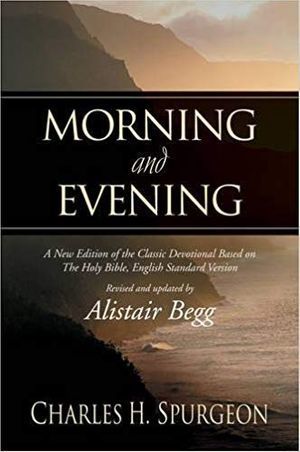For many of us, prayer feels confusing and burdensome. We wonder whether we are "getting it right." Jesus' disciples felt the same way. "Teach us to pray!" they begged him. In order to understand prayer, we have to understand how it is related to Scripture. As Eugene Peterson says, "Prayer is never the first word. It is always the second word. God has the first word." Prayer always follows Scripture, just as we open worship with the words of a Psalm before we pray. God's words first; our words second.
If we have the Bible, we already have everything we need to pray. We simply pray the Scriptures, pray after the Scriptures, pray from the Scriptures. We don't grow prayer on our own. Prayer springs up from scripture as naturally as plants from good and watered soil.
If we have the Bible, we already have everything we need to pray. We simply pray the Scriptures, pray after the Scriptures, pray from the Scriptures. We don't grow prayer on our own. Prayer springs up from scripture as naturally as plants from good and watered soil.
The Psalms
The Psalms are the best tools for prayer that we have. They have shaped the worship and prayer of the Church from the very beginning. Everything you can possibly experience in life is in the Psalms: joy, sadness, suffering, rejection, abandonment, confusion, depression, anxiety, anger, lament. The Psalms teach you to deal with God in every one of these experiences. And they teach you to pray for others when you are not experiencing those things yourself.



The Daily Office
The daily office is a fixed time of listening to Scripture and praying. Before it meant the place one goes to work (or the TV show) the word "office" originally meant "the work that one did." In monastic communities, it was the "work" of every individual to pray, and so they devised six daily "offices" - six times, every 24 hours, for prayer. Most Christians are not able to pause six times a day, but we can pause for one or two times a day.
All Saints sends out emails with the content of the Daily Office two times every single day - once in the morning and once in the evening. Sign up to receive those emails here.
What is so beneficial about Daily Office is that it combines many of the other ideas and tools. With the Daily Office, all pressure is off. No more "figuring out" what to read and what to pray on your own. It is all given to you, right there - receive it!
All Saints sends out emails with the content of the Daily Office two times every single day - once in the morning and once in the evening. Sign up to receive those emails here.
What is so beneficial about Daily Office is that it combines many of the other ideas and tools. With the Daily Office, all pressure is off. No more "figuring out" what to read and what to pray on your own. It is all given to you, right there - receive it!
Morning and Evening by Charles Spurgeon
Spurgeon was an English minister in London and one of the best preachers of all time. Now, most people know him for this devotional. It is what it sounds like: for each day, a morning meditation and an evening meditation based on a short passage of Scripture. You will be shocked at how much Spurgeon can glean from one short text. You'll learn to see that Scripture is, indeed, the "pearl of great price."

Lectio Divina
"Lectio Divina" (Latin for divine reading) is a method of reading, meditating upon, and praying Scripture. Typically, Lectio Divina involves four stages. These stages can be remembered using "the four R's" - Read, Reflect, Respond, and Rest. There are many variations of lectio divina, but here is one to try:
- Reading Glasses - The first time through, simply read the passage.
- Magnifying Glass - Hone in on a word or short phrase (the shorter the better) that will serve as your "one word." This word becomes the focus of your meditation and prayer. Spend five minutes meditating on this one word - no need to rush or come up with any novel thoughts. Then, spend five more minutes letting this word frame your prayers to God.
- Mirror - This time through, ask, "what is one thing this passage is calling me to be or to do? The Bible always works on us, showing us not only who God is , but who we are, and where we might need the Spirit to change us.
- Telescope - Every passage of Scripture looks in to the distance, forward and/or backward. This final time through, look for Christ! Look back to his first coming (his life, death and resurrection) and forward to his second coming (new heavens and new earth).
